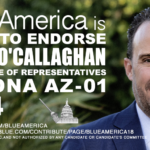Liz Cheney went on Morning Joe today and tried to defend her father's recent media appearances, in which he attacked the Obama administration's policies in the war on terror, and moreover his role in enacting the torture regime that he's now so vigorously defending as having saved "thousands of lives."
To which Eugene Robinson responded in the Washington Post:
The fallacy lies in the fact that it is impossible for Cheney to prove that anti-terrorism methods within the bounds of U.S. law and tradition would have failed to prevent new attacks. Nor, for that matter, can Cheney demonstrate that torture and other abuses were particularly effective.
Liz Cheney, of course, thinks that's all wrong: These "interrogation methods" kept us safe -- and that's all the justification they need. She thinks having the OLC write up an excuse as paper cover is justification enough, and said so to Robinson, after he compared their lawbreaking to a bank robbery:
Robinson: But look, efficacy isn't the only thing we should be talking about here. We should also be talking about legality. We should be talking about whether what was done was legal. If I rob a bank and get away with it, there's a lot of efficacy there, but it's not legal.
Cheney: Yeah, but that's not a fair comparison. That's not fair. Because this program was very responsibly and carefully done. And if you look at the history of it, with the CIA coming to the NSC and saying, 'We need to know what we can do legally.' And the very legal opinions that the administration has released are in fact the documents that set out in great detail, this is what you can do, and this is what you can't do. If you cross this line, it becomes illegal. If you cross this line, it becomes torture. It was very, very clear. So I think it does a real disservice to the people who ran the program to equate it with robbing a bank or with criminal activity. You have to look at the very specific and important legal restrictions that were put in place.
Robinson: I do not think that's the case. Torture is a war crime. It is a war crime.
Cheney: That's right. And this wasn't torture. Those legal memos demonstrated where the line was, and where it would become torture.
Robinson: Waterboarding was torture during the Spanish Inquisition, it was torture when Pol Pot did it, and I believe it was torture when we did it. But that --
It quickly devolves into crosstalk, and Cheney spends a lot of time filibustering with her talking points, but she never is able to effectively respond to Robinson's chief point: Legal paperwork is not adequate cover for committing torture, one of the most heinous of all crimes. As he points out at the end:
No, you don't have to make that choice. You don't have to choose to act in an illegal manner. You don't have to.
And there was a revealing exchange at the end of this discussion between Cheney and Mike Barnicle:
Barnicle: Forget the legal niceties of legal or illegal. If he's the only one you have in your hand, then there's something seriously wrong with your intelligence capabilities. If you only have one guy who can give you that information?
Cheney: Exactly. That's exactly right. You know, Mike, that's a really important point, because that's where we were on Sept. 12, we didn't know anything about Al Qaeda -- well, I shouldn't say "anything." We didn't know very much about Al Qaeda.
That's right -- especially if the "we" is the Bush administration particularly, and not our intelligence agencies generally. Because the Bush/Cheney (starting to look even more like it really was Cheney/Bush, in retrospect) administration was completely asleep at the wheel on Sept. 11, having dismissed concern about Al Qaeda as "a Clinton thing".
Dick Cheney and George W. Bush and Condi Rice didn't know much about Al Qaeda on Sept. 12 because they had ignored Richard Clarke's in-depth memo on the subject back in January!
Then there was the Aug. 6, 2001, presidential daily briefing titled "Bin Laden determined to strike in US," which concluded:
We have not been able to corroborate some of the more sensational threat reporting, such as that from a ---- service in 1998 saying that Bin Laden wanted to hijack a U.S. aircraft to gain the release of "Blind Sheikh" Omar Abdel Rahman and other U.S.-held extremists.
Nevertheless, FBI information since that time indicates patterns of suspicious activity in this country consistent with preparations for hijackings or other types of attacks, including recent surveillance of federal buildings in New York.
The FBI is conducting approximately 70 full-field investigations throughout the U.S. that it considers bin Laden-related. CIA and the FBI are investigating a call to our embassy in the UAE in May saying that a group or bin Laden supporters was in the U.S. planning attacks with explosives.
Of course, that memo was ignored too. Neither Bush nor Cheney nor anyone else in the adminstration insisted we gather more intelligence on Al Qaeda at that point. It was a "Clinton thing."
Moreover, there was that 2006 National Intelligence Estimate whicch found that Bush's "war on terror" has certifiably made us less safe, and more likely to suffer future terrorist attacks:
A stark assessment of terrorism trends by American intelligence agencies has found that the American invasion and occupation of Iraq has helped spawn a new generation of Islamic radicalism and that the overall terrorist threat has grown since the Sept. 11 attacks.
The classified National Intelligence Estimate attributes a more direct role to the Iraq war in fueling radicalism than that presented either in recent White House documents or in a report released Wednesday by the House Intelligence Committee, according to several officials in Washington involved in preparing the assessment or who have read the final document.
The intelligence estimate, completed in April, is the first formal appraisal of global terrorism by United States intelligence agencies since the Iraq war began, and represents a consensus view of the 16 disparate spy services inside government. Titled “Trends in Global Terrorism: Implications for the United States,’’ it asserts that Islamic radicalism, rather than being in retreat, has metastasized and spread across the globe.
Among the reasons the report identified for its spread? "[T]he indefinite detention of prisoners at Guantánamo Bay and the Abu Ghraib prison abuse scandal".
And now we're expected to find Dick Cheney and Friends and Family credible when they warn us that Obama taking action to address these problems will make us more vulnerable?
Right.
As Robinson says in his column:
Other high-ranking officials from the previous administration, including George W. Bush himself, have had the manners and good sense to follow long-established custom and refrain from attacking the new president and his policies. Cheney, however, is not only accusing President Obama of knowingly putting American lives at risk -- an outrageous charge -- but is also diving headlong into partisan politics.


















